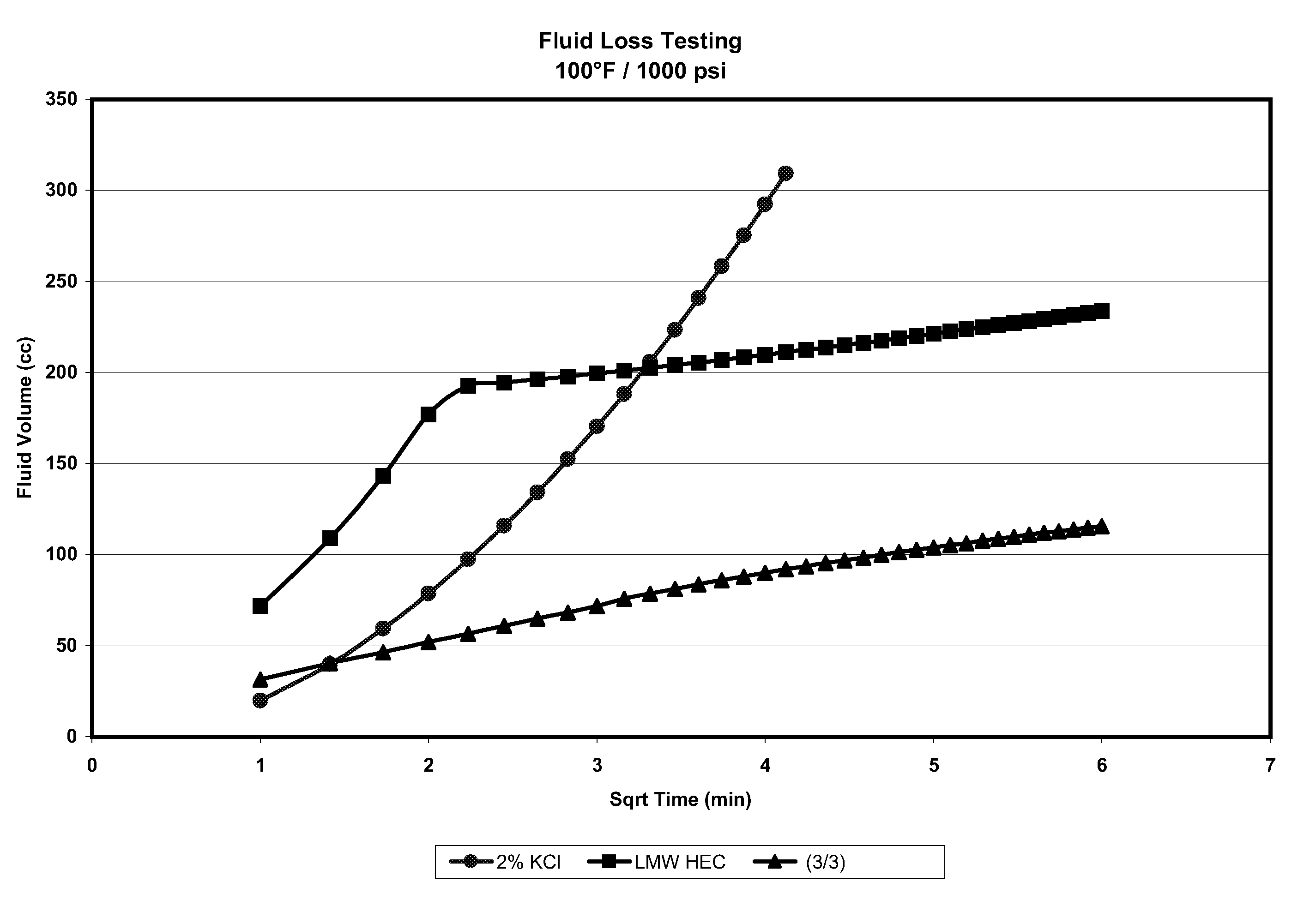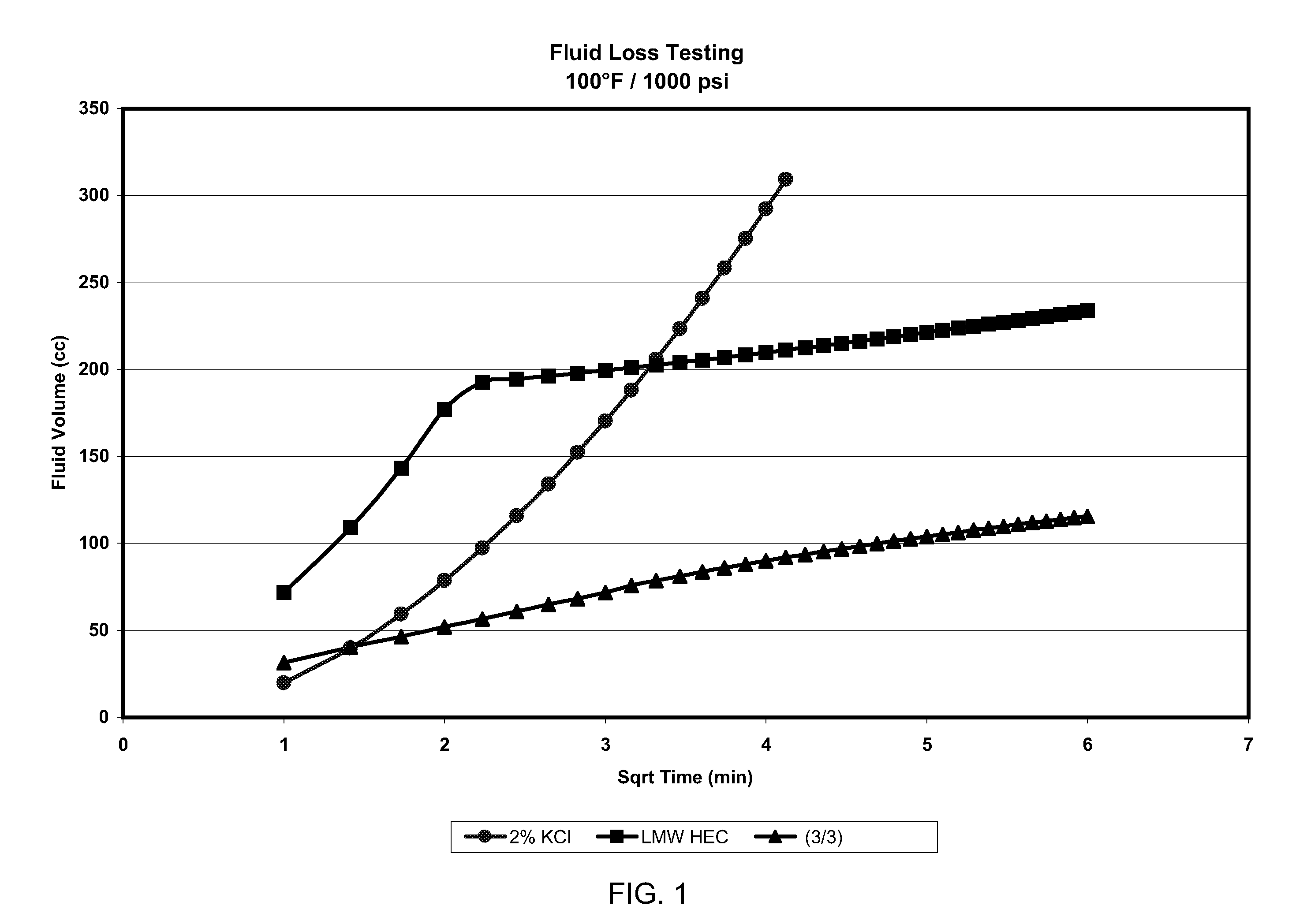Method for reducing fluid loss during hydraulic fracturing or sand control treatment
a technology of hydraulic fracturing and fluid loss, applied in fluid removal, chemistry apparatus and processes, borehole/well accessories, etc., can solve the problems of increasing the difficulty of proppant transportation, reducing the conductivity of fractures, and reducing the volume of propped fractures, so as to reduce fluid loss and reduce fluid loss.
- Summary
- Abstract
- Description
- Claims
- Application Information
AI Technical Summary
Benefits of technology
Problems solved by technology
Method used
Image
Examples
examples
[0034]A fluid loss test was performed at 100° F. and on a 10 mD Berea core measuring 2 inches in length and 1 inch in diameter. The cores were loaded with the test fluid and sealed into a fluid loss cell. Approximately 1,000 lbs of pressure was applied to the top of the cell. The cell was then opened at the top. The bottom valve was also opened, thereby forcing the fluid to flow through the sealed core. The amount of fluid exiting the cell (disc diameter: 1 inch) was then measured. Fluids tested were (1) a 2% KCl brine having a fluid density of 8.37 ppg; (2) 100 parts per thousand gallons of hydroxyethyl cellulose (HEC) having a weight average molecular weight of 90,000 in 2% KCl brine, fluid density: 8.37 ppg and a viscosity of 7 cps @ 511 sec−1; and (3) 3 gallons of trimethyloctadecylammonium chloride and 3 gallons of sodium xylene sulfonate per thousand gallons of fresh water, fluid density: 8.34 ppg and a viscosity between 6 to 7 cps @ 511 sec−1. The method was conducted in acco...
PUM
 Login to View More
Login to View More Abstract
Description
Claims
Application Information
 Login to View More
Login to View More - R&D
- Intellectual Property
- Life Sciences
- Materials
- Tech Scout
- Unparalleled Data Quality
- Higher Quality Content
- 60% Fewer Hallucinations
Browse by: Latest US Patents, China's latest patents, Technical Efficacy Thesaurus, Application Domain, Technology Topic, Popular Technical Reports.
© 2025 PatSnap. All rights reserved.Legal|Privacy policy|Modern Slavery Act Transparency Statement|Sitemap|About US| Contact US: help@patsnap.com


